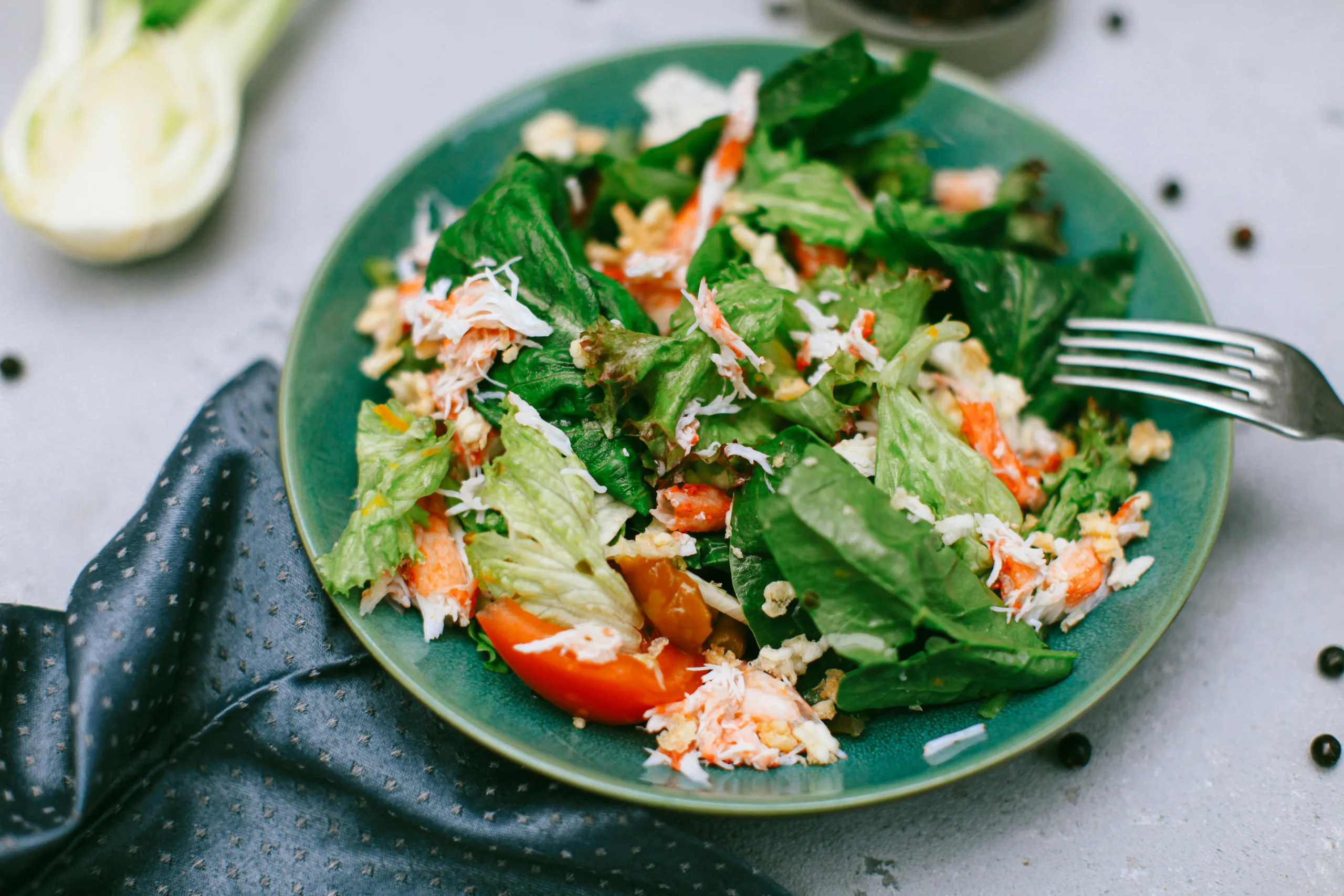5 PCOS Weight Loss Myths That Are Holding You Back – And The Real Truth!

Polycystic Ovary Syndrome (PCOS) affects millions of women worldwide, making weight loss an uphill battle. Many people turn to fad diets, extreme exercise routines, or calorie-cutting methods, hoping for quick results. But unfortunately, these common myths often make PCOS symptoms worse, leading to frustration, stalled progress, and even weight gain.
If you’ve been struggling with PCOS and weight loss, you’re not alone. Let’s debunk the biggest myths and uncover what actually works for sustainable, long-term weight loss.
Myth 1: Crash Diets Are the Fastest Way to Lose Weight with PCOS
🚫 The Crash Diet Trap
We’ve all seen those “Lose 10 Pounds in a Week” diets floating around social media. They promise quick results, but what they don’t tell you is that crash diets can slow down your metabolism, increase stress hormones, and worsen PCOS symptoms.
When you drastically reduce your calorie intake, your body goes into survival mode, holding onto fat and burning muscle instead. This not only slows your metabolism but can also lead to fatigue, cravings, and hormonal imbalances. Plus, once you stop the crash diet, you’ll likely regain all the weight—and more.
💡 The Better Approach:
Instead of extreme calorie restriction, focus on balanced, nutrient-dense meals that keep your blood sugar stable and support hormonal health. Here’s what works best:
✅ Prioritize protein – Lean meats, eggs, tofu, and legumes help maintain muscle and curb cravings.
✅ Choose fiber-rich foods – Whole grains, vegetables, and fruits slow digestion, preventing blood sugar spikes.
✅ Eat regularly – Skipping meals can cause intense hunger, leading to binge eating later in the day.
Social Media Buzz: Many women on TikTok and Instagram have shared their PCOS weight loss experiences, proving that crash diets lead to exhaustion, hair loss, and weight regain. The most successful transformations happen when people focus on sustainable lifestyle changes, not starvation diets.

📢 Social Media Buzz: What People Are Saying About PCOS Weight Loss!
Want to know what real women with PCOS are saying about their weight loss journeys? Here’s a roundup of some of the most insightful social media posts from experts and influencers who are breaking down the myths and sharing what actually works!
🔹 Twitter & Instagram Posts
🗣️ “Crash diets don’t work for PCOS! I lost 15 lbs by eating more whole foods, not starving myself! #PCOSWeightLoss”
🔗 See the full post
💪 “Ladies with #PCOS, stop over-exercising! I switched from HIIT to strength training + walking and finally saw results!”
🔗 Watch my transformation
🥑 “Fat is NOT your enemy! Eating healthy fats like avocados & salmon actually helped balance my hormones & lose weight. #PCOSDiet”
🔗 Check out my meal plan
Myth 2: Cutting Out All Fats Helps You Lose Weight
🚫 The Low-Fat Diet Mistake
For decades, diet culture has convinced us that eating fat makes you fat. But in reality, cutting out all fats can slow down metabolism, disrupt hormones, and increase cravings.
Women with PCOS already struggle with insulin resistance, and avoiding healthy fats can make it worse. Without enough fat in your diet, your body struggles to regulate hormones like estrogen and progesterone, leading to irregular periods, fatigue, and even skin issues.

💡 What Really Works:
Instead of avoiding fats, choose the right ones to help balance hormones and keep you full longer:
✅ Avocados – Packed with fiber and healthy monounsaturated fats, great for heart health.
✅ Nuts & seeds – Help stabilize blood sugar and prevent insulin spikes.
✅ Olive oil & fatty fish – Anti-inflammatory benefits that support overall well-being.
Social Media Views: More dietitians and PCOS coaches on Instagram are breaking the myth that fats should be avoided. Many women who reintroduced healthy fats into their diet noticed better energy, clearer skin, and easier weight loss.
Myth 3: The More You Exercise, the More Weight You’ll Lose
🚫 Why Over-Exercising Can Backfire
It’s easy to think that burning more calories equals more weight loss, but for women with PCOS, too much exercise can increase stress hormones, making weight loss even harder.
Over-exercising causes cortisol (the stress hormone) to rise, which can:
❌ Trigger inflammation, leading to bloating and water retention.
❌ Slow down metabolism, making it harder to burn fat.
❌ Cause irregular periods, due to excess stress on the body.
💡 The Right Exercise Routine:
Instead of intense workouts, focus on moderate, low-impact exercise that helps balance hormones and reduce stress:
✅ Strength training – Builds lean muscle, which boosts metabolism without overworking the body.
✅ Walking – Helps burn fat efficiently while reducing stress levels.
✅ Pilates & yoga – Improve flexibility, posture, and mental well-being without excessive strain.
🔗 Find out how exercise affects PCOS
Social Media Trends: More PCOS fitness experts are promoting less HIIT, more strength training and mindful movement. Women who switched from high-intensity workouts to balanced movement saw better results in their weight loss journeys.
Myth 4: All Calories Are Equal
🚫 The Truth About Calories
Many weight loss programs focus on calories in vs. calories out, but not all calories affect your body the same way.
For example:
🍩 100 calories from a donut = blood sugar spike, energy crash, and fat storage.
🥗 100 calories from vegetables = steady digestion, sustained energy, and improved metabolism.

💡 What Matters More Than Calories:
Instead of just tracking calories, focus on the quality and source of your food:
✅ Whole foods – Provide nutrients that keep your body functioning properly.
✅ High-fiber meals – Help regulate blood sugar and digestion.
✅ Protein-rich foods – Keep you full longer and support muscle growth.
🔗 Why calorie quality matters more than calorie count
Social Media Highlights: More nutritionists are now teaching clients to eat for nourishment, not just calorie counting. Women who switched to nutrient-dense foods instead of obsessing over calorie limits saw better energy levels, fewer cravings, and easier weight management.
Myth 5: Skipping Meals Helps You Lose Weight
🚫 Why Skipping Meals Can Make PCOS Worse
Many believe that eating less often will lead to weight loss, but skipping meals can cause blood sugar crashes, intense cravings, and slowed metabolism.
When you skip meals, your body:
❌ Releases more stress hormones, making fat storage more likely.
❌ Burns muscle instead of fat, slowing metabolism over time.
❌ Increases cravings, leading to overeating later in the day.
💡 The Right Way to Eat for PCOS:
✅ Eat balanced meals regularly to keep metabolism steady.
✅ Combine protein, fiber, and healthy fats in every meal.
✅ Avoid long fasting periods, which can cause hormone imbalances.
🔗 Learn why meal timing is crucial for metabolism
The Best PCOS Weight Loss Strategy: Balance Over Extremes!
One of the biggest mistakes people make when trying to lose weight with PCOS is following extreme approaches—whether it’s crash dieting, cutting out entire food groups, or exercising excessively. But the truth is, your body needs balance, not extremes. Sustainable weight loss happens when you support your metabolism, balance hormones, and make long-term lifestyle changes.
What Actually Works for PCOS Weight Loss?
✔️ Focus on whole, nutrient-dense foods – Instead of cutting calories drastically, nourish your body with real, unprocessed foods that support digestion and hormone balance.
✔️ Eat consistently – Skipping meals can lead to blood sugar spikes, increased cravings, and fat storage. Regular, balanced meals help maintain steady energy levels.
✔️ Exercise smarter, not harder – Overtraining can increase cortisol (the stress hormone), making weight loss more difficult. Instead, opt for a mix of strength training, walking, and mindful movement like yoga to support your metabolism.
✔️ Prioritize sleep and stress management – Poor sleep and high stress levels worsen insulin resistance and make weight loss harder. Try to get 7-9 hours of quality sleep and practice stress-reducing activities like deep breathing, journaling, or meditation.
✔️ Stay consistent and be patient – PCOS weight loss doesn’t happen overnight. It requires small, sustainable changes that lead to long-term results. Instead of obsessing over the scale, focus on how you feel—your energy levels, mood, and overall well-being.
Many women with PCOS have found success not through quick fixes but through balanced lifestyle shifts. By focusing on health over restriction, you can build habits that support your body in the long run.
✨ What’s your biggest struggle with PCOS weight loss? Share in the comments! Let’s support each other!






